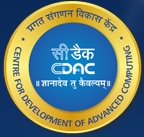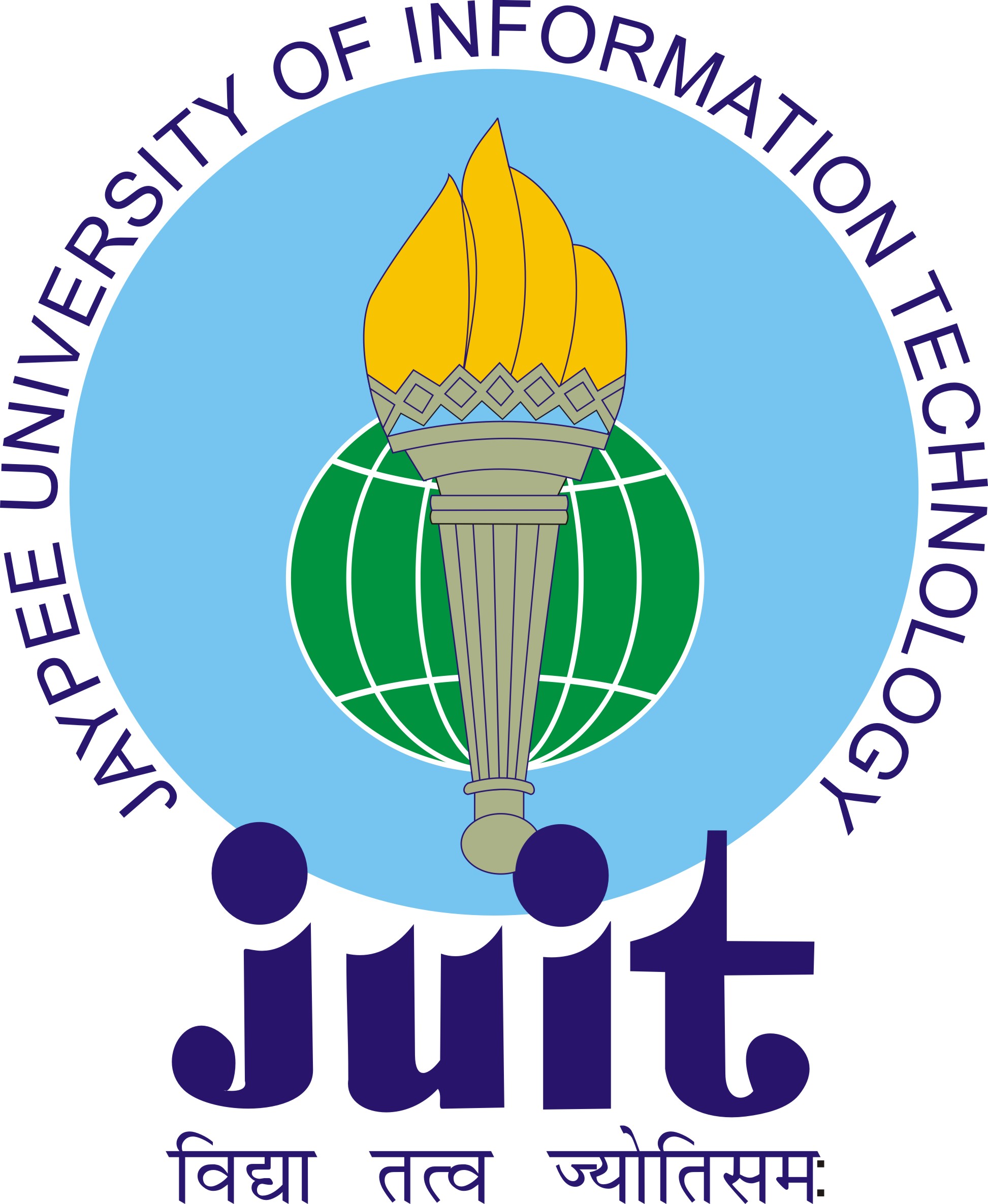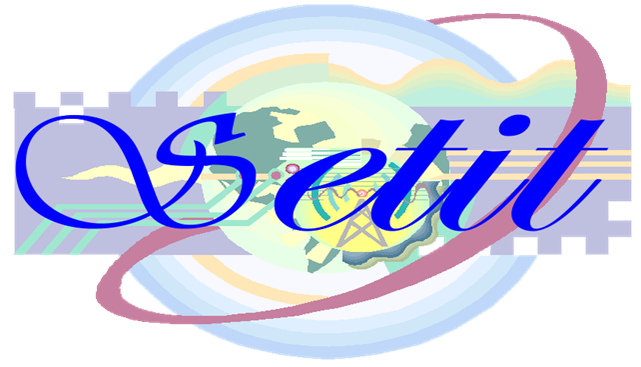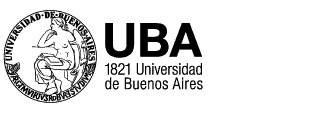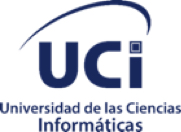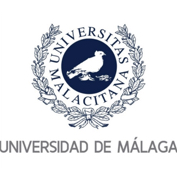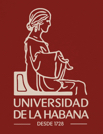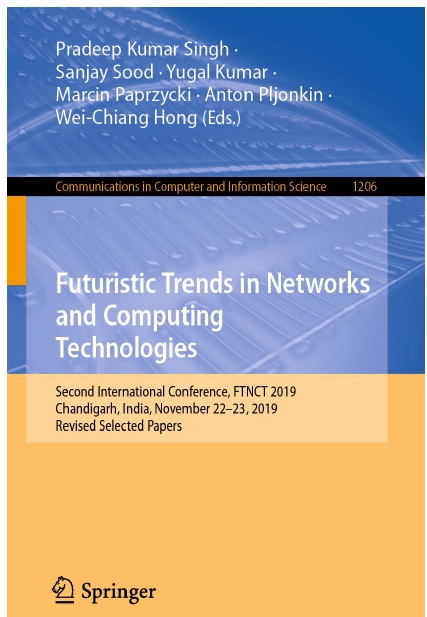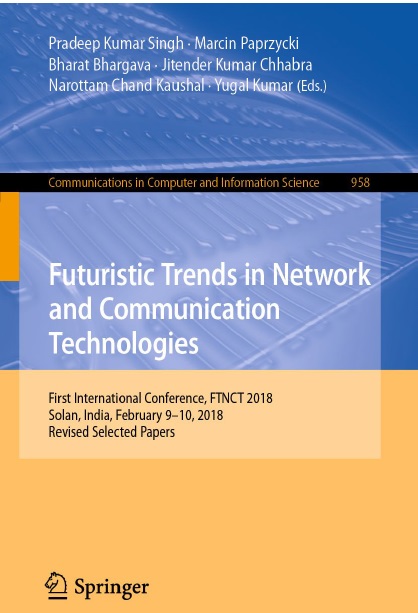HOME

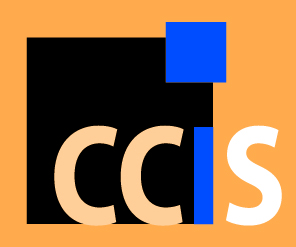
FTNCT-2020 Approved by CCIS, Springer (Indexed by Scopus and DBLP)
AIM and SCOPE
In 2020, FTNCT will visit Taganrog, a port on the Sea of Azov in southern Russia, famous as a birthplace of famous Russian writer Anton Chekhov.The goal of the FTNCT is to explore the challenges, issues and opportunities both for academic researchers and industrial innovators from different different domains of Networks, Computing and Communication Technologies to discuss the latest frontiers of technology and novel trends that have not been thought of before. Application areas include networking, computing, machine learning, data mining, wireless communications, big data, cloud computing, augmented reality, image processing, mobile and optical communications, cyber security. The target audience of FTNCT ranges from Senior researchers to Ph.D. and Master students. Researchers and engineers from companies are welcome, and may greatly benefit from the broad vision provided by this conference.
Research papers from each track after the positive blind peer review by at-least two reviewers with good score will be selected for oral presentation during the conference. Selected papers after the further revision will be submitted to Publishing Partner.
The first international conference on FTNCT-2018 was hosted by JUIT, Waknaghat, Solan, HP from 09 February 2018 to 10 February 2018 (FTNCT 2018). FTNCT 2018 proceedings are available at
https://www.springer.com/gp/book/9789811338038
Original unpublished articles are invited for submission to following tracks including the topics, but are not limited to:
Track 1 - Network and Computing Technologies:
Parallel & Distributed Networks, Social & Smart Networks, Software Defined Networks, Vehicular Ad-hoc Networks, Mobile Ad-hoc Networks, Body Area Networks, Opportunistic Networks, Cognitive Radio Networks, QoS in Networks, Networks related issues, design, architectures algorithms and applications.
Mobile & Ubiquitous Computing, Grid & Distributed Computing, Edge Computing, Fog Computing, Cloud & Big Data Technologies, Parallel Computing, Quantum Computing, Cognitive Computing and their applications and related topics.
Track 2 – Wireless Networks and Internet of Things (IoT)
Wireless Sensor Networks, Design and Implementation Issues in WSN, Network Security and Attacks, Network Protocols and QoS, Node Clustering in WSN, Routing and Architectures in WSN, High Speed Wireless Networks and related topics
IoT Architectures & Protocols, IoT's impact on 5G, IoT enabling technologies, IoT services and applications, IoT & Big Data Management, and future internet design for various IoT use cases, Big Data, Cloud and IoT for Smart World:- Smart City, Smart Transport, Smart Grid, Smart Healthcare, Education, HMS, DSS and Expert Systems for Smart World, E-Learning, Mobile learning and related topics.
Track 3 - Futuristic Computing Technologies:
Computational Intelligence, Advancement in AI and Machine Learning (ML) Technologies, Expert System & Decision Support Systems, Deep Learning Technologies, Nature- Inspired Computing, Natural Language Processing, Robotics, Computer Vision and Virtual Reality, Augmented Reality, Image Processing (IP) Applications, IP for Surveillance and Security Systems, Emerging Trends in ML and AI, Data Mining and Analytics, Pattern Recognition and Machine Vision, Web and Social Media Mining, Opinion Mining, Sentiment Analysis, Data Analysis for Smart World like Health-care, Education etc. and Emerging Technologies and its related topics.
Track 4 – Communication Technologies, Security and Privacy:
Communication Technologies, Mobile Communication, Optical Communications and Networking, Internet of Vehicles (IoV), Future Internet Architecture and Protocols, Green Communications, Internet of Everything (IOE), Digital Modulation and Signal Processing and their application, Coding and Information Theory, Speech/Image/Video Processing and its applications, Cloud and Swarm Robotics, Cyber Physical Systems, Security & Privacy in Computing Technologies, Security in IoT & Cloud, Cyber Security and Malware protection, Data Security and Disaster Recovery, Security in Mobile Networks, E-Governance, Security in E-Governance and related topics.Visible light communication, Secured free space optics, optical stegonography.



